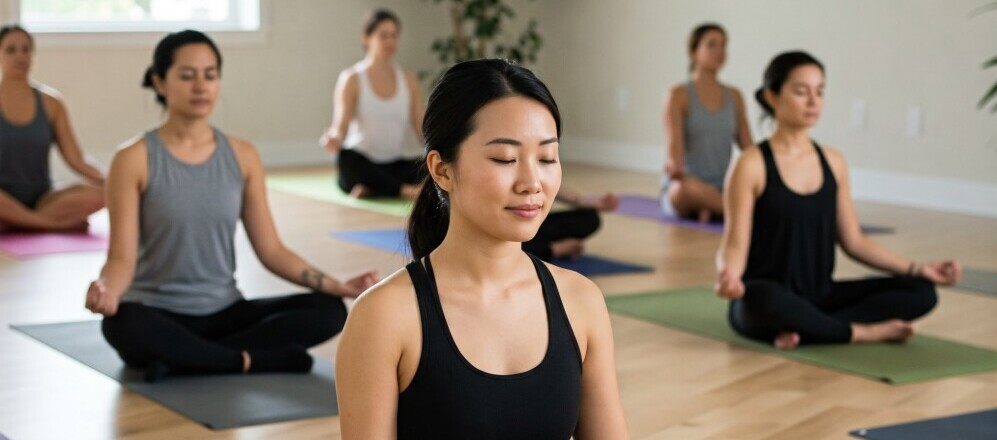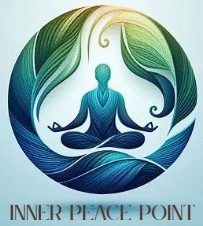
Meditation has been around for ages, serving different purposes across various cultures. While it used to be a thing for the spiritual and monks hunched in caves, meditation has made leaps into the mainstream, especially when it comes to health benefits.
At its core, meditation is all about focus and awareness. You sit quietly, clear your mind—or at least try—and embrace the stillness. The whole idea is to tune in to what’s happening in the moment, letting go of stress and finding a bit of zen.
Recent studies have really started connecting the dots between regular meditation and improvements in health. We’re not just talking about feeling a tad calmer. Consistent meditation can lower blood pressure, improve sleep, and even boost your immune system. It’s like your body’s way of thanking your brain for chilling out.
With our fast-paced lives, meditation ain’t just some trendy buzzword. It’s a sneaky yet effective remedy against burnout, stress, and mental exhaustion. More folks are jumping on this bandwagon to find some inner peace and balance amid the chaos of daily life. So, if you want to add a little tranquility to your wellness routine, you’re in the right neighborhood.
How Meditation Improves Health
The connection between mind and body plays a significant role when it comes to health, and meditation is at the heart of this relationship. By focusing on the present moment, meditation helps realign mental space, leading to direct benefits on physical health. This practice isn’t just fluff; it actively reduces the stress hormones coursing through your veins. Less stress means lower risk of various health problems, like heart diseases and high blood pressure.
Getting a grip on stress and anxiety is one of the best-known perks of meditation. It helps create a space where you can let go of worries, even if it’s just for a few minutes. With time, it becomes easier to handle daily stressors, resulting in a happier, more tranquil life. You’ll notice an enhanced mental clarity, sharpening that foggy brain and making room for better decision-making.
Meditation boosts emotional well-being too. It promotes awareness of emotions, giving you the tools to manage them better. Instead of bottling up feelings, it encourages you to understand and accept them, leading to improved relationships and a more fulfilling life. By practicing meditation regularly, you boost your capacity for kindness and empathy, which reflects positively in all interactions.
Incorporating meditation into daily routines doesn’t just boost mental processes but also has a ripple effect on our overall health. Improved mood equates to increased motivation for physical activities, better sleep patterns, and a more robust immune system. So, in a way, sitting quietly and focusing on the now isn’t just helping your mind; it’s healing your body as well.

Discovering the Best Meditation Techniques for Health
Not all meditation is cut from the same cloth. There’s a buffet of styles out there, each offering its own set of perks. Whether you want a mental facelift or just a moment of peace, knowing what style suits your goals makes a world of difference.
Mindfulness meditation is probably the superstar here. It’s all about paying attention to the present moment without judgment. You’re focusing on your breath or any other anchor, observing thoughts as they come and go without chasing after them. This style is great for managing stress and sharpening focus.
Loving-kindness meditation takes a gentler approach by encouraging positive feelings and compassion towards yourself and others. This can lead to a big boost in mood and overall emotional health. It’s perfect if you’re looking to foster better connections or want to work on self-esteem.
Then there’s transcendental meditation, where you silently repeat a mantra and let your mind go beyond the usual thoughts. This style’s got a knack for relaxation, lowering anxiety, and fostering a sense of peace. It’s straightforward but profound in its calming effects.
Choosing the right meditation might feel like diving into the deep end, but tapping into resources like meditation apps can make things more accessible. Apps like Headspace or Calm serve as a handy guide, offering tailored suggestions for your personal health goals.
The bottom line? There’s no one-size-fits-all when it comes to meditation. Experimenting with different styles and figuring out what resonates with you is the best way to integrate meditation into your life and reap those juicy health benefits.
Healing the Body with Meditation
Meditation’s power isn’t limited to the confines of the mind; it travels down to our body’s very core, aiding in various healing processes. It operates like a reset button, turning off the constant ‘fight or flight’ mode that modern life seems to trigger.
Mental calmness achieved through meditation has direct effects on physical healing. It encourages relaxation, which lowers stress-induced cortisol levels, reduces inflammation, and promotes an environment where the body can heal more effectively. This aspect is particularly beneficial for those grappling with chronic pain or illnesses.
Techniques like body scan meditation involve mentally scanning each part of your body to release tension and promote relaxation. It’s a useful tool for pain management, allowing your brain to redirect focus and ease discomfort.
Meditative practices also contribute to better sleep. By reducing anxiety and promoting relaxation, meditation helps prepare your body for rest, making it easier to enjoy deep, restorative slumber. A well-rested body is more efficient at repair and rejuvenation, boosting overall health.
Bringing meditation into your daily routine isn’t only about achieving zen but employing a consistent practice to enhance your body’s natural healing capabilities. Whether you’re eyeing relief from pain or aiming to improve sleep quality, meditation offers a hands-free way to uplift physical well-being.

Understanding the 5 R’s of Meditation
The 5 R’s of meditation offer a simple structure to enhance the practice, making it more effective for health and well-being. These principles—Relax, Release, Reflect, Reconnect, and Rejuvenate—cover the core elements of meditation, ensuring a comprehensive approach to mental and physical health.
Relaxation sits at the heart of meditation. It’s about creating a calm space within where you can let go of tension. Finding a comfortable spot, closing your eyes, and taking deep breaths are the starting points for entering this tranquil state.
Next is Release, which involves letting go of those nagging thoughts and worries. Instead of clinging to distractions, acknowledge them and gently push them aside, leaving space for peace and focus.
Reflection encourages you to contemplate your experiences during meditation and understand your emotional responses. This self-awareness is transformative, as it helps in coping better with everyday stresses.
Reconnect involves tuning back into the world around you with a refreshed perspective. It’s about bridging the gap between your meditative state and daily life, carrying the calmness and clarity obtained during meditation into everyday interactions.
Rejuvenate is the final step, focusing on restoring your mind and body. The energy and balance gained from meditation flow into your daily activities, enhancing your overall productivity and health.
Incorporating the 5 R’s into your meditation practice isn’t about ticking a checklist but embracing a fluid process that promotes continuous growth and improvement. Sticking with these principles can ensure that meditation remains a valuable ally in the quest for better health.
